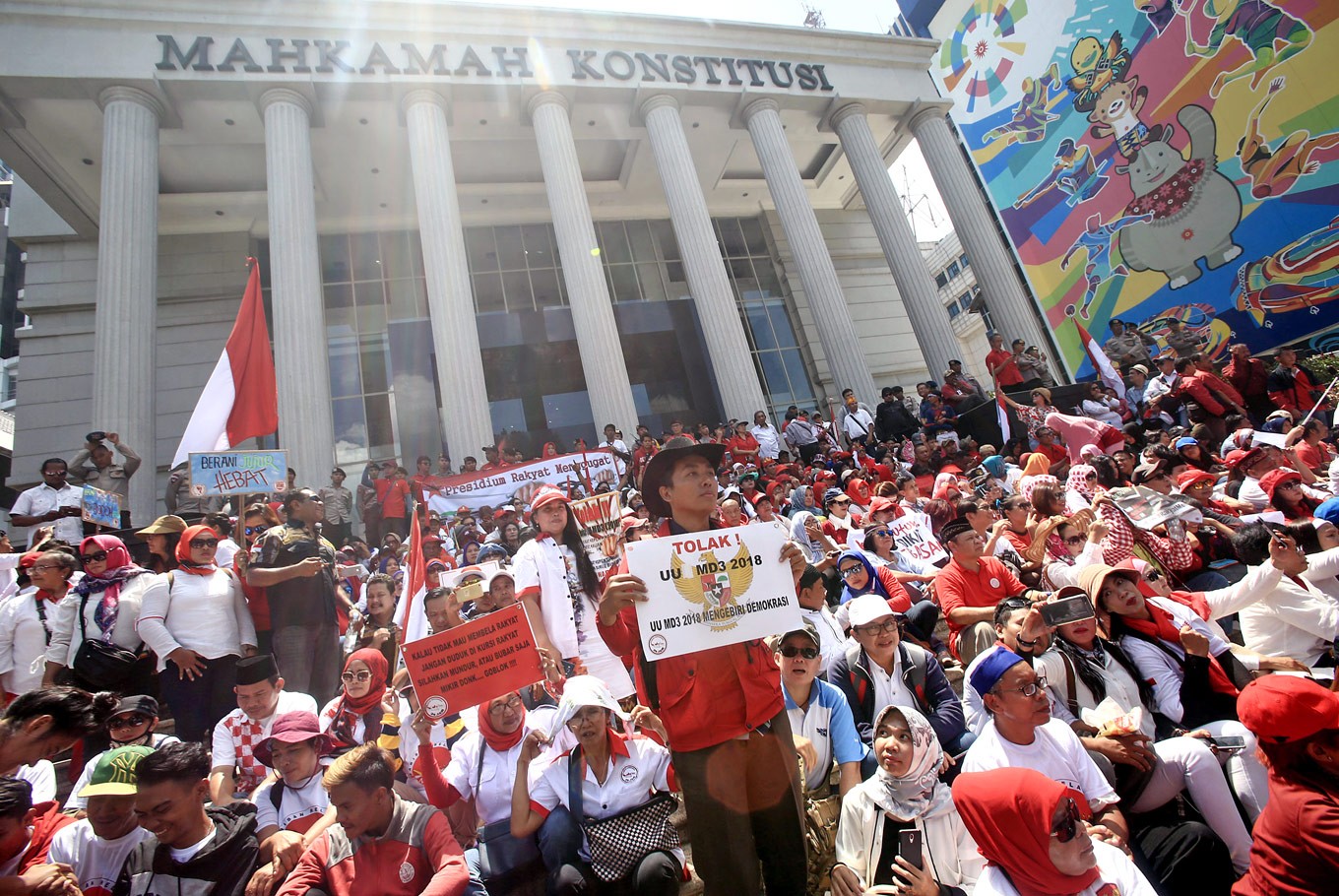Popular Reads
Top Results
Can't find what you're looking for?
View all search resultsPopular Reads
Top Results
Can't find what you're looking for?
View all search resultsBack to the Constitution: Trust the system
Change text size
Gift Premium Articles
to Anyone
M
y newly retired constitutional law professor Dominique Rousseau, a very respected professor who taught at Sorbonne Law School once said. “the constitution is a regulator of passions”. It reestablishes balance between the extreme wills upheld by different components of a democracy. We must learn to respect the constitution in order to advance as a law abiding nation.
The state of democracy is always crucial, regardless of the country, or even the political parties in a given nation. The word “democracy” in itself is very often misunderstood or misused, even though its subjective meaning is debatable. Democracy, derived from “dēmokratía” in ancient Greek, can be divided into two segments : “demos” meaning the people, and “kratos” meaning to command. in a democracy, the people hold the power. However, today most of us forget that Indonesia, as well as almost all democratic countries, adopt a representative democracy.
In a representative democracy, the people express their will through their representatives, the elected officials. In fine, a representative democracy can only be successful enough and flourish if the people trust in the system. This is why Article 22E of the Indonesian Constitution states that : “General elections shall be conducted in a direct, general, free, secret, honest, and fair manner once every five years”. The general election is the most powerful tool held by the people in a representative democracy.
A crisis involving trust might be a common problem amongst newly established democracies, but it even occurs in experienced ones. For example, as Indonesia attempts to tackle its own crisis, people in France have been protesting and conducting massive demonstrations over the months in a movement led by the “yellow vests”. Though the movement was initiated because of the lack of trust in the current French government, the people recognize their rights (established mostly in the Declaration Of Human And Civic Rights Of 1789) and refer to the 1958 Constitution in order to rightfully claim justice. Even though a slim minority seeks an anarchist movement, the vast majority knows its place and role as the people. This is an example of results attributed to a lengthy process of democratisation that started in the 18th century.
Recently, in a televized post-election interview, a political activist suggested that “people power” will prevail. According to him, as a logical consequence, reporting alleged election fraud would be pointless. This claim was also backed up by a previous member of the People's Consultative Assembly. The claim is significant not only because it is highly provocative, but also due to its distorted context.
The most important and powerful tool that the people can access in a representative democracy is their right to vote. Should there be any suspicion of a fraudulent one, it must be reported. In a rule of law, the law itself is the guarantee to the people’s sovereignty. Therefore, judicial procedures must be carried out in order to not only clarify, but also punish the wrongful party or parties (in case of a proven fraud).
Claiming that the people should take matters into their own hands in order to obtain “justice” is highly unconstitutional. It is stated in the very first article of our Constitution that : “Sovereignty is in the hands of the people and is implemented according to this Constitution.”. Encouraging anarchy as well as promoting outrage and distrust is a very dangerous move. Nevertheless, both parties shall engage in a reasonable conflict, by adopting legal procedures to determine the outcome of this chaotic mess. As we all have observed, distrust in the system can only lead to chaos and division which is furthermore accentuated by Indonesia’s diverse nature. The government must imperatively take this opportunity to assert its integrity and regain trust. By ensuring a fair legal procedure, the government shall once again be the backbone of the Constitution, which is the supreme norm in this representative democratic republic.
Setting an example is of the utmost importance today. This election will set a precedent for future generations. It is time to unite and learn to be responsible while executing our rights as the people. With great power comes even greater responsibility. We must be wise and solidify our bond, especially considering our diverse nature. The Constitution shall be our foundation in this battle for the truth. Only this supreme norm that we all have in common can be the justification when resolving our diverse distress. We must hold on to the law and uphold justice in an organized manner.
***
The writer is an Indonesian student at Sorbonne Law School (Université Paris 1) in Paris, France.











